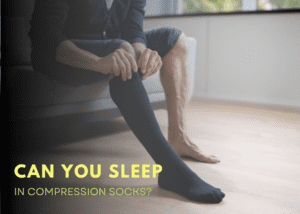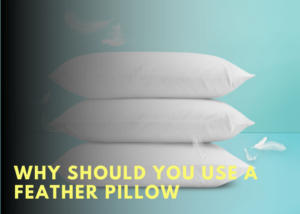Do you have some anxiety about getting a tattoo and how much it will hurt? Or if you’ll be able to sleep through it.
Soft tissue tattoos are rarely painful, and once you get used to the sensation, you can easily drift off to sleep. Getting tattooed over bone areas can be very painful, especially on shins, collarbones, and impossible to sleep through.
Can You Sleep During A Tattoo?
Generally speaking, we all feel pain. Differently, some of us are hypersensitive, and even the thought or suggestion of pain can heighten the sensation, while others have no worries at the thought of a bit of discomfort.
But is it a great idea to drift off and catch up on your sleep while getting a tattoo? Most tattoo artists are involved in their artistry and creating a tattoo you will be proud to wear for the rest of your life.
The tattoo artist may not even notice if you have fallen asleep while being tattooed but could be a little concerned when they look up.
The problem could arise if your tattoo artist doesn’t know if you dream or have passed out with fear. The latter could have implications.
Presumably, you have spent some time looking through tattoo designs and choosing a tattoo artist you feel can deliver the artwork you desire.
The last thing your tattoo artist needs is waking from a deep sleep with a startling finding you have needles and color entering your flesh, which could have disastrous results for your chosen design.
Being Nervous
If you are overly nervous about the tattoo procedure, this nervousness manifests itself in a feeling of exhaustion. Good tattoo artists recognize this trait in their clients and talk to them about the upcoming experience.
Being nervous is normal for a first-time tattoo, so go with something small before embarking on an adventure to have a masterpiece tattooed on your back. This way, you have a good idea of what’s coming in terms of pain and discomfort.
Is It Bad To Not Sleep Before Getting a Tattoo?
Sleep is vital for so many reasons, and not sleeping before a tattoo may lessen the experience of your new ink.
Getting ink that will stay with you for the rest of your life, it’s a big deal, so be on top of your game and enjoy the experience.
Lack of sleep will affect your mood, and the last thing your tattoo artist wants is a grampy client. Not sleeping will not dull the pain.
If you have multiple tattoos, you already know the drill and know the tattoo artist may want to move you around for larger pieces of artwork.
When Can You Sleep On A Tattoo?
We all heal at a different pace depending on age, fitness, and our immune system, so there is no ideal time, but as a rule, you should try not to sleep on your tattoo for at least 3 or 4 days.
If you are comfortable sleeping where your tattoo is not located, then let it heal fully before transferring your weight onto the tattoo.
However, each tattoo artist has their own opinion on this question, and you should listen to their opinion on when is the best time to sleep on your tattoo.
What Happens If You Accidentally Sleep on Your Tattoo?
Depending on the location of your tattoo, it may be inevitable that you inadvertently sleep on the new tattoo for a short period; it happens.
It pays to keep your tattoo wrapped for the first few days, so there should not be any big drama if you accidentally sleep on your new tattoo.
It is worth placing a thin towel between the bedsheet and mattress. The tattooed area may bleed a little.
Your tattoo artist will give you advice and let you know what to do if you sleep on your tattoo accidentally.
Can They Knock You Out For A Tattoo?
No. Being knocked out or receiving a general anesthetic requires a fully trained anesthetist with a support team to administer a general anesthetic that would render you unconscious or knocked out.
The guidelines and rules for this procedure are stringent, and violations would see criminal charges against the perpetrator.
If your tattoo artist offers you this service, run for the hills.
Reducing Pain and Discomfort
While anesthesia is not available from your tattoo artist, it is acceptable for the tattoo artist to use topical anesthetic creams that dull the sensation.
They are not a great success and only last for a short time, but the fear of pain is often more psychological than reality presents.
For larger tattoos and tattoos in sensitive areas such as over bone and thin skin, it is permissible to take ibuprofen maybe an hour before the tattoo will commence. This should take the edge of the sensation and make the process bearable.
Taking Care Of Your Tattoo
Your new tattoo will need some care and attention at first, and if you have lots of vibrant colors, the more care and attention you use in maintenance will keep your tattoo looking vibrant for years to come.
The first thing your tattoo artist will do when completed and you have viewed the beauty of your new tattoo is to wrap the tattoo in a clear bandage.
These are medical-grade wraps and should not be confused with sandwich wraps, although they make a good substitute if that’s the only thing at hand.
Your tattooist will give you instructions for aftercare. Listen to the tattooist they know best, and their advice will always be better than your best friend or cousin from another town.
You can generally unwrap your new tattoo in a few days at a week at the very maximum. It’s ok to wash the tattoo with a mild soap containing an antibacterial ingredient.
After washing the pat, the tattoo dry does not be tempted to rub dry. Your tattoo is effectively an open wound, so use great care and attention to keep the tattoo clean at all times.
Once the scabs appear, you can safely remove the transparent covering and expose it to the air. At this time, it’s good to add moisturizer.
What Can You Not Do While Getting a Tattoo?
Do not assist the scabs in falling off. Picking scabs can result in the clear lines defining the tattoo becoming less defined and spoiling the tattooed image.
Resist scratching if your tattoo is itchy. Try using moisturizer to relieve it; after about six weeks, your tattoo will be fully healed, and if you let those scabs fall naturally and you didn’t scratch, the colors will pop, and the outlines will be clear.
Don’t Swim
Don’t do it if you are tempted to hit the local pool to show off your new ink. The pool is chlorinated, and the chlorine will dull the tattoo while in the healing process.
If you live close to the shoreline, swimming in the ocean is unsuitable for your new tattoo. The salt in the water will dry the tattoo and affect the colors and outline.
Avoid hot tubs. The hot tub is chlorinated and often a breeding place for bacteria as the chlorine boils off from the water. Don’t expose your new tattoo to potential bacteria.
Remember, the oceans can be polluted with all kinds of undesirables, and your tattoo needs to be clean at all times during the healing process.
Avoid Sleeping On The New Tattoo
Although accidental sleeping can’t be avoided, as a rule, try not to sleep on your new tattoo. Find a position where you can sleep and rest.
We want to avoid friction on the tattoo area until it completely healed.
Avoid Direct SunLight
Understandably, you want to show off your new ink, and the temptation to hit the beach in the summer months may be overwhelming.
If you feel your new tattoo stinging or becoming irritated by the sun, it is time to cover the tattoo and avoid the UV rays. UV will degrade to colors in your tattoo. The beach is an excellent place to pick up airborne bacteria.
Avoid Sun Block
If you are heading out in the sun, keep your new tattoo covered until wholly healed at around six weeks. Sunblock will irritate the tattoo, and the active ingredients could cause some fading of the colors. Stay out of the sun for at least six weeks.
When your tattoo is healed, then layer on the sunblock to protect the tattoo from UV fading.
Avoid Touching Your Tattoo
It can almost be irresistible to touch your new tattoo, don’t do it. Your hands are not always spotlessly clean, and this is a good way of introducing bacteria to the tattoo and causing an infection. If you must touch, make sure your hands are clean.





